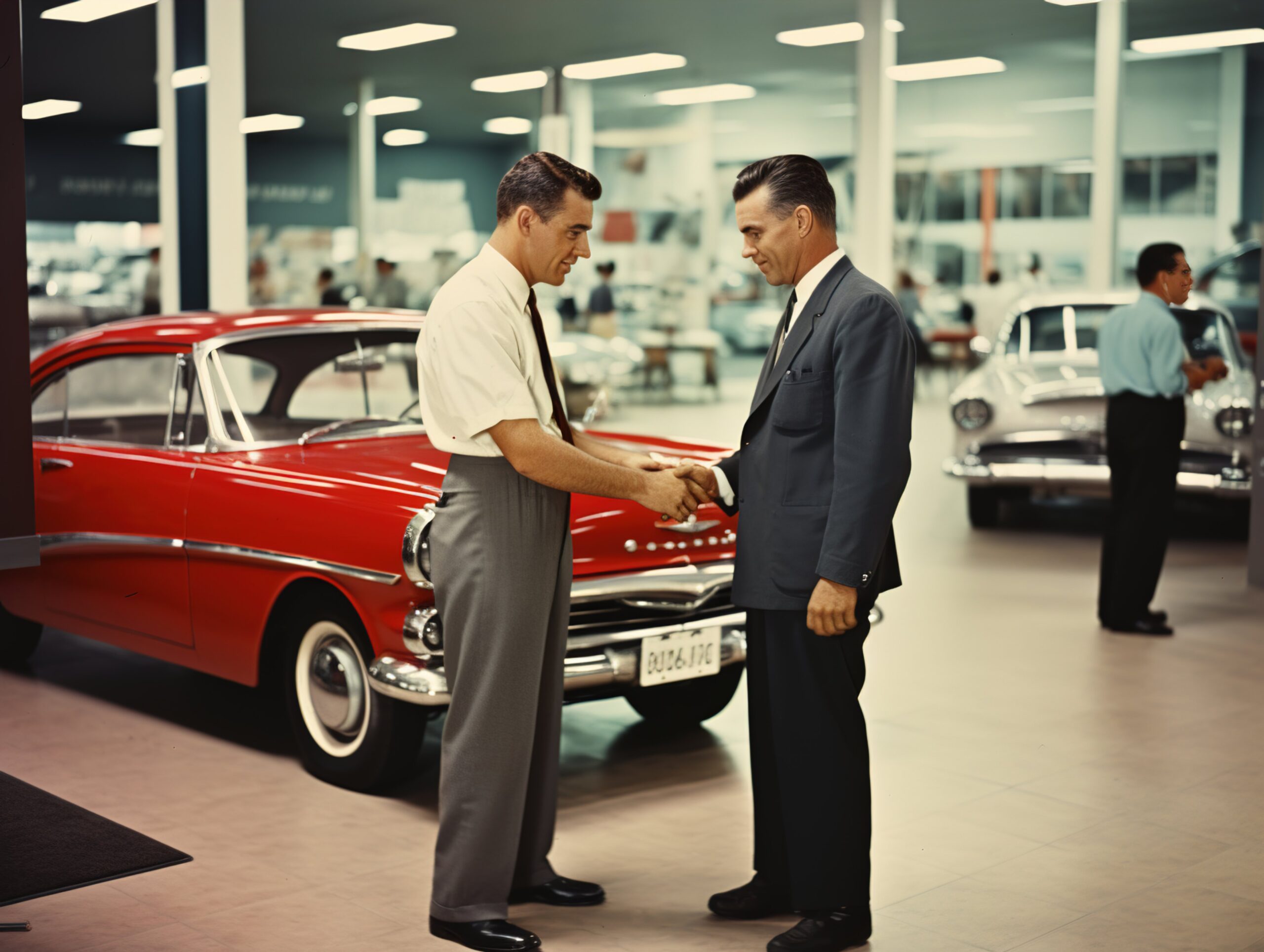In the rapidly evolving automotive market of Ireland, the choice between online and dealer car sales has become increasingly prominent. Each method offers unique advantages and disadvantages that cater to different buyer preferences and circumstances. Pros of Online Car Sales:
1. Convenience: Shopping from the comfort of home allows for browsing at any time, eliminating the stress of visiting multiple dealerships.
2. Wider Selection: Online platforms usually feature a more extensive inventory, providing access to cars from various dealers across Ireland.
3. Price Comparison: Online sales enable easy comparison of prices across different platforms, helping buyers find the best deals without the need for haggling.
4. Transparency: Many online listings include detailed vehicle histories, specifications, and reviews, allowing buyers to make informed decisions.
5. Home Delivery Options: Some platforms offer delivery services directly to the buyer’s home, adding an extra layer of convenience.
Key Highlights
- Selling a used car can seem complicated, but choosing the best method simplifies the process while ensuring an efficient sale.
- Knowing consumer rights, whether buying or selling, ensures legal protection and sets expectations for quality and durability.
- To sell like a professional, gather necessary documents, check the car’s service history, and prepare thoroughly for buyers.
- Autobuyers.ie is the best option for hassle-free transactions, offering a trustworthy cash-for-cars service and a quick sale.
- Learn key terms such as vehicle registration certificate, NCT certificate, and vehicle registration tax to navigate paperwork easily.
- Selecting the right selling method, like an online marketplace, ensures greater access to car buyers and increases the likelihood of getting the best deal.
Introduction
Selling your car doesn’t have to be stressful. Whether you’re a private seller or trading in through dealerships, understanding the process is vital. This includes knowing your consumer rights, adhering to regulations from the Consumer Protection Commission, and ensuring compliance with vehicle standards set by organisations like the Society of the Irish Motor Industry. Navigating the sale of your used car with the right preparation will guarantee a smooth and successful transaction. Let’s dive into the essentials for efficient car selling.
Understanding the Basics of Selling Your Car
To successfully sell a used car, you need clarity on the basic steps involved, including checking the odometer. First, assess the car’s condition and gather all paperwork, such as the vehicle registration certificate and NCT certificate. Understanding costs, maintenance records, and verifying ownership are equally important for a buyer’s confidence. Choosing the correct method to sell is vital, whether you opt for a private sale, dealership trade-in, or seek professionals like Autobuyers.ie.
Equally crucial is being aware of legal requirements, including vehicle registration tax and change of ownership applications. Selling an imported vehicle demands additional checks and paperwork, ensuring compliance with Irish road laws. By organising these steps systematically, you position yourself for a hassle-free and transparent car sale. Some methods are quicker, while others may guarantee a higher return—but preparation ensures success in all cases.
Why selling your car is a beneficial decision
Deciding to sell your car opens up numerous benefits, especially if the vehicle no longer meets your needs. Upgrading to a more fuel-efficient car with the right fuel type could save you substantial costs on petrol or diesel over time. Selling your old car lets you find models that align better with modern standards and long-term savings.
Selling can also provide valuable financial returns, enabling you to seek the best deal in the market. Whether through trade-ins or direct sales to companies like Autobuyers.ie, each mode ensures you gain the value the car deserves. Every sale offers a chance to move to fresher options without compromising your wallet.
Finally, there’s the factor of peace of mind. A well-prepared sale eliminates concerns about future maintenance issues or declining resale value. Ready to make your next move? Begin by maximising your vehicle’s potential in the current market.
Key terms to know before selling your car
For a smooth transaction when selling a used car, grasping key terms is necessary. Here are some you must be familiar with:
- Vehicle Registration Certificate: Essential for transferring ownership legally, this document identifies the car’s current owner.
- Vehicle Registration Tax (VRT): Applicable when registering an imported vehicle in Ireland, verifying this ensures uninterrupted compliance.
- Type of Car: Whether it’s a hatchback, sedan, or SUV, its specifications and purpose influence the ease and speed of its sale.
These terms impact the paperwork and communication between seller and buyer. For a private seller, such clarity ensures hassle-free transfers without delays. Buyers expect comprehensive details—showing your preparedness builds professional confidence with every interested party. Familiarising yourself strengthens your approach, making a competitive market easier to navigate.
Key Takeaways: What You Need to Know
Selling a used car requires preparation, strategy, and an understanding of the paperwork involved. Key aspects include legal obligations like the vehicle registration tax, securing a vehicle registration certificate, and choosing the right platform for sale—be it an online marketplace or a direct buyer like Autobuyers.ie.
This blog argues that preparation is king when selling your car. By researching your vehicle’s history, preparing ownership documents, and selecting trustworthy services, you safeguard yourself while ensuring your car gets the best deal.
The importance of the right selling method
Choosing the appropriate method is crucial for a smooth car sale. Online marketplaces are highly popular, granting the private seller access to thousands of car buyers at once. These platforms make listings easier but require careful pricing and negotiations to secure fair offers.
Partnering with dealerships and SIMI members adds professionalism. Dealers can facilitate the sale with warranties, easing concerns for buyers. Trading in for a new car also simplifies the process, though it may not yield the highest financial returns.
For maximum convenience, Autobuyers.ie stands as one of the most efficient options. Our direct buying process negates complexities like listing or negotiating while guaranteeing value. By focusing on your specific needs, the right outlet ensures satisfaction at every turn.
Autobuyers.ie as a top choice for selling your car
Autobuyers.ie shines as the best resource for selling used cars, offering reliability and ease. With quick payment options and professional handling, we simplify the selling process, allowing you to avoid listing or negotiating stress.
What sets Autobuyers.ie apart is our thorough car history check, which ensures informed buyers and a transparent sale. Our process considers all key details—whether it’s the car insurance status or maintenance history—eliminating surprises during transaction completion.
Furthermore, interested buyers often appreciate the option to arrange a test drive. Autobuyers.ie facilitates this smoothly, helping both parties agree fairly. Opt for a hassle-free experience that prioritizes satisfaction and trust.
Preparing to Sell Your Car
Before putting your car on the market, preparation impacts your success significantly. Begin by gathering all essential documents, such as the Vehicle Registration Certificate and NCT certificate, and consider detailing the car’s past maintenance history.
Equally, check the car’s exterior thoroughly for cleanliness and safety. From tyres to wheel arches, every part should impress potential buyers. Decide based on your car type whether minor fixes are necessary to boost its sale value.
Gathering necessary documents
To ensure a smooth transaction when selling your car, gathering the necessary documents is essential. Start by locating the Vehicle Registration Certificate (VRC) and the vehicle registration tax (VRT) receipts. Including your own car history check and the car history check service results adds peace of mind for prospective buyers. Don’t forget to obtain the NCT certificate, which confirms your car’s compliance with safety standards. Additionally, having documentation like the owner’s handbook and details of any outstanding finance can bolster your credibility as a private seller and safeguard your consumer rights.
Preparing your car for sale
Preparing for the sale involves several key steps to maximize your vehicle’s appeal. First, ensure that all necessary paperwork is in order, including the vehicle registration certificate and car history check service results. Address any minor repairs, such as fixing wipers or removing rust, to enhance its presentation. Additionally, give your car a thorough cleaning, both inside and out, highlighting its safety features like seat belts and air conditioning. These small efforts can foster trust with potential buyers and lead to a better final deal.
Step-by-Step Guide to Selling Your Car
Selling a car involves a systematic approach to ensure you get the best value. Start by evaluating your car’s worth through market research and consider factors like mileage, condition, and service history. Next, select a selling method that aligns with your needs, whether it’s through an online marketplace or a private sale. Prepare your car by cleaning it thoroughly and gathering necessary documents, such as the vehicle registration certificate, NCT certificate, and any existing warranty details. This will facilitate a smooth transaction and instill confidence in potential buyers.
Step 1: Evaluate Your Car’s Value
Determining the value of your vehicle is essential before proceeding with a sale. This involves analyzing factors such as the car’s age, mileage, make, model, and overall condition—including any safety features or notable wear like rust. Utilizing resources like car history check services, alongside a thorough checklist, can provide insights into your car’s market position. Consulting the Society of the Irish Motor Industry (SIMI) and online marketplaces can also offer a clearer picture of competitive pricing, ensuring you receive the best deal possible.
Step 2: Choose the Best Selling Method
Deciding how to sell your vehicle significantly influences your outcomes. Online marketplaces offer convenience and a broader audience, while engaging a private seller may provide more personalized interactions. Alternatively, utilizing SIMI members or dealerships ensures a smoother process but could lead to fewer legal rights and potential fees. Assessing factors such as your car’s type, condition, and market demand can guide your choice. With the right method, achieving the best deal becomes easier, giving you peace of mind throughout the transaction.
Step 3: List Your Car for Sale
When ready to share your vehicle, leveraging an online marketplace can maximize visibility. Craft a detailed listing that highlights the car’s features, including safety features and fuel efficiency, while ensuring a fair representation of its condition. Include essential documents such as the vehicle registration certificate, NCT certificate, and any service history to instill trust. Use clear, compelling photos that showcase its best angles, including the interior and areas like wheel arches or upholstery. This comprehensive approach aids in attracting serious buyers and securing the best deal.
Step 4: Negotiate with Buyers
Effective negotiation is crucial in securing a satisfactory deal for your car sale. Understanding the market value and having relevant documentation, such as the vehicle registration certificate and car history check, provides leverage during discussions. Be prepared to address any concerns buyers may have, like outstanding finance or mechanical issues, to instill confidence. Utilize your knowledge about the vehicle’s durability and features, reinforcing its worth. This approach fosters trust and increases the likelihood of reaching an agreement that benefits both parties.
Your consumer rights
Understanding the landscape of consumer rights is crucial for anyone contemplating a vehicle purchase. In Ireland, both private sellers and dealers must adhere to specific guidelines as outlined by the Consumer Protection Commission (CCPC) to ensure fair practices. When buying a used car, consumers enjoy protections that include the right to receive a satisfactory vehicle, free from faults or faulty goods, and complete transparency regarding its history. Familiarity with these rights is essential, particularly in negotiations and understanding warranties, ensuring peace of mind throughout the buying process.
Buying from a garage or car dealer
Purchasing from a garage or car dealer can offer advantages such as a higher level of consumer protection compared to private sellers. Registered dealers are often members of the Society of the Irish Motor Industry (SIMI), ensuring compliance with consumer rights. The purchase typically includes vital paperwork, a valid vehicle registration certificate, and possibly a manufacturer’s warranty, enhancing peace of mind. Additionally, engaging with a trusted dealer often allows buyers to test drive vehicles and check for important features like mileage and safety options, while also providing access to a consumer complaints service for any issues that may arise.
Buying at a car auction
Exploring the dynamic atmosphere of car auctions reveals a unique approach to purchasing vehicles. Bidders can often secure remarkable deals on a variety of cars, from used models to electric options. However, understanding the nuances of this buying method is crucial, especially regarding the auctioneer’s conditions of sale. Conducting a thorough car history check is essential to ensure the vehicle’s integrity and to review its number of previous owners. Moreover, be prepared for bidding wars, where knowing your limits can help safeguard your budget while maximizing the opportunity for a great deal.
Conclusion
Successfully navigating the car-selling process can bring peace of mind, especially when equipped with the right knowledge. Understanding your rights as a seller and buyer under consumer law ensures a straightforward sale whether you’re dealing with a private seller or a dealership. Utilizing tools such as a car history check service, for which you may be charged a small fee, can protect against pitfalls associated with previous ownership. Regardless of your choice between online or dealer car sales in Ireland, being informed empowers you to make decisions that best suit your needs.
Frequently Asked Questions
What paperwork do I need to sell my car?
To sell your car, you’ll typically need the title, registration, and any loan payoff information. Additionally, prepare a bill of sale and maintenance records. If applicable, ensure you have emissions certification or inspection reports to facilitate a smoother transaction with potential buyers.
How can I determine the best selling price for my car?
To determine the best selling price for your car, research similar models in your area, assess its condition, and consider factors like mileage and market demand. Utilize online valuation tools or consult with local dealerships to help establish a competitive price point.
What are the benefits of selling through Autobuyers.ie?
Selling through autobuyers.ie offers convenience, quick transactions, and competitive pricing. It simplifies the selling process by connecting you with serious buyers, ensuring a hassle-free experience. Additionally, our expertise can help you maximize your car’s value while saving time and effort.
How to handle negotiations with potential buyers?
When negotiating with potential buyers, stay calm and confident. Set a minimum price beforehand, be open to counteroffers, and highlight your car’s best features. Always be willing to walk away if the deal doesn’t meet your expectations, ensuring you get a fair price.
Final Thoughts on Selling Your Car
Selling your car can be straightforward if you follow the right steps. Remember to gather all necessary documents, prepare your vehicle carefully, and choose the best selling method. Always negotiate wisely and understand your consumer rights to ensure a smooth transaction.
Reviewing the selling process and outcomes
After completing the sale, reflect on the entire process and outcomes. Analyze what went well, any challenges encountered, and how effectively you negotiated. This review helps improve future selling experiences and ensures better strategies for maximizing value in upcoming transactions.








